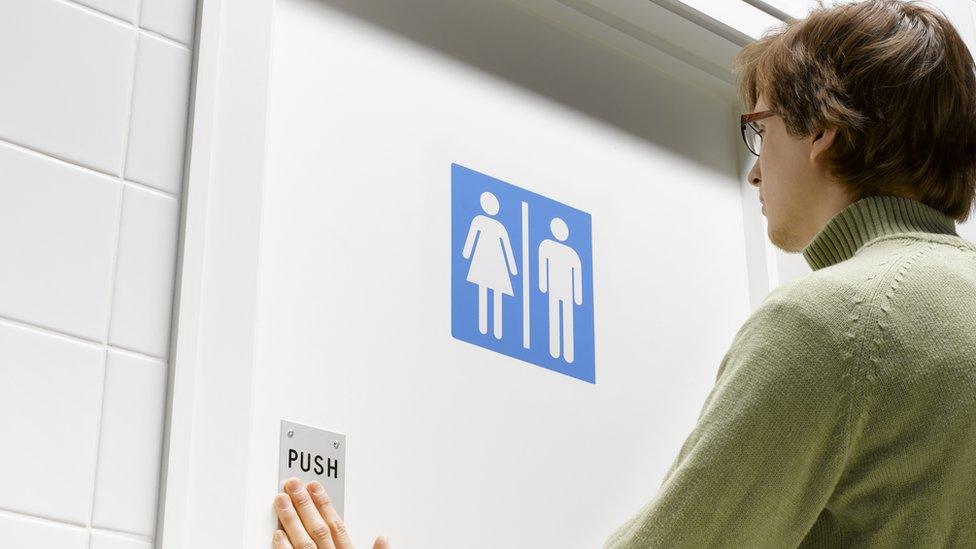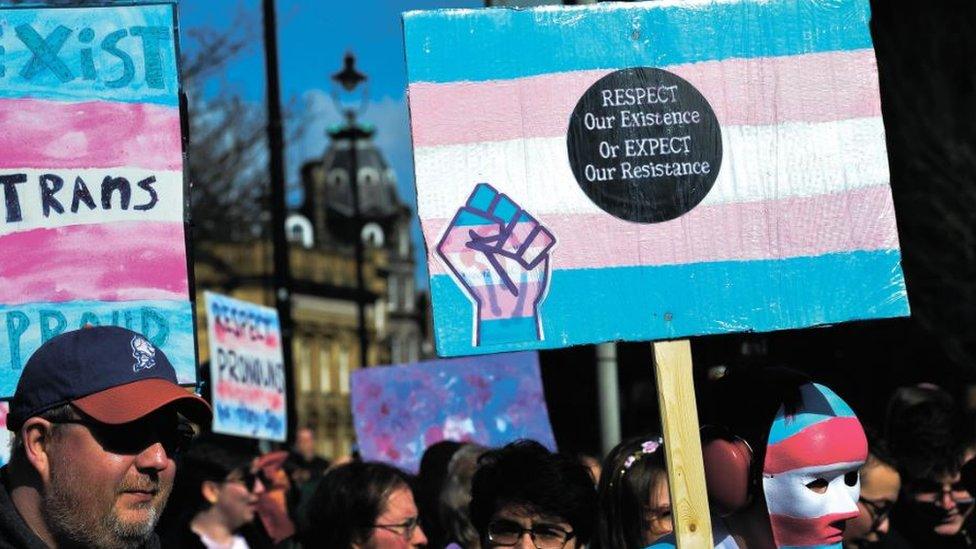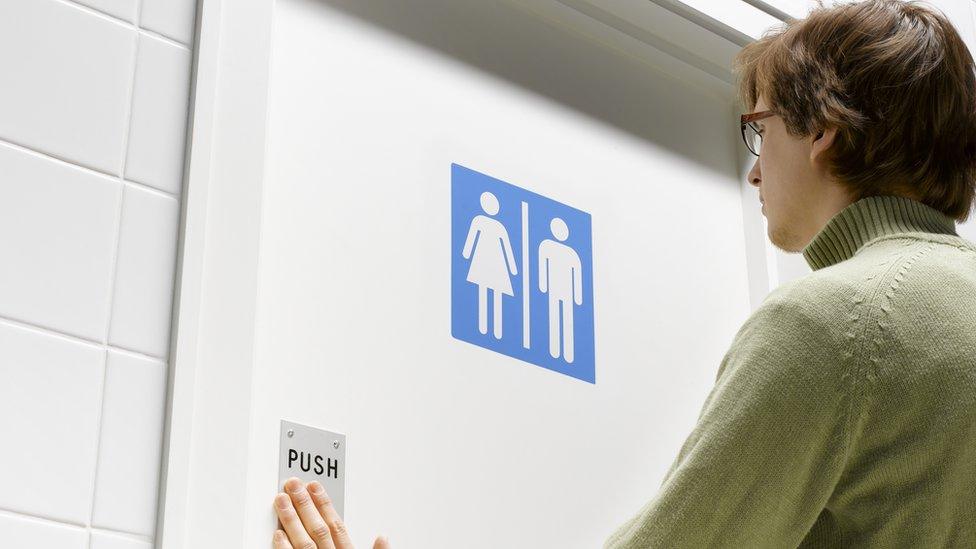Law change could aid single-sex spaces - watchdog
- Published

Guidance issued by the watchdog last year said trans people could be excluded from areas, such as bathrooms, if there was a legitimate reason such as privacy or safety
Ministers will consider advice from the human rights watchdog about amending a legal definition of sex - which would make it easier to exclude transgender people from some groups or services.
Changing the Equality Act term to "biological sex" would make single-sex services offers easier, says the EHRC (Equality and Human Rights Commission).
LGBTQ+ charity Stonewall said it risks adding to a "manufactured culture war".
The EHRC says it would give clarity in a "polarised and contentious" area.
A person's sex is recorded on their birth certificate when they are born. People who are transgender can apply for a Gender Recognition Certificate (GRC), which changes their legal sex on documents such as their birth certificate, marriage certificate and eventually their death certificate.
If the law was amended, it could mean that those who have done so would no longer be classed as the new sex listed on these documents for the purposes of the act, which was designed to protect people from discrimination.
For example, if a transgender woman had updated her birth certificate so that the sex listed was female, under the suggested changes to the Equality Act her sex would still be classified as male and she would be restricted from entering women-only spaces by default.
Last year, the EHRC provided guidance for when spaces could exclude transgender people from single-sex areas, but only if it was considered a "proportionate means of achieving a legitimate aim", for example privacy or safety.
Last year there were 500 GRCs issued in Great Britain, and more than 7,000 have been issued since 2004.
In February, the Women and Equalities minister Kemi Badenoch wrote to the EHRC, external asking for advice about amending the Equality Act's definition of sex.
In her response,, external Baroness Falkner said redefining sex as "biological sex" merited further consideration in an area that she described as "polarised and contentious".
She said it would make it simpler for some settings, such as a women-only hospital ward, to be a space for biological women and exclude trans women, whether or not they had a GRC changing their legal sex.
Other examples she gave included sports groups and lesbian and gay associations. She specified how a lesbian support group currently may have to admit a trans woman with a GRC, but if the Equality Act was amended, the group could restrict membership to biological women only.
However, Baroness Falkner acknowledged that a change could be "more ambiguous" than the current definition of sex in relation to equal pay and sex discrimination.
She said any changes to the law would need detailed analysis of possible disadvantages for trans men and women in these areas.
There are nine protected characteristics in the Equality Act such as sex, gender reassignment and religion. The role of the EHRC is to provide guidance and enforce the law to protect against discrimination.
Campaign groups and LGBT charities are divided over the intervention.
Sex Matters, which previously set up a petition calling for a clarification of the Equality Act, has welcomed the advice and described it as "measured and thoughtful".
Stonewall, however, says there is no evidence it is needed and risks opening what it has called "yet another chapter in a manufactured culture war".
A government spokesperson says it has received the advice and will consider it.
Related topics
- Published11 February 2022

- Published4 April 2022
